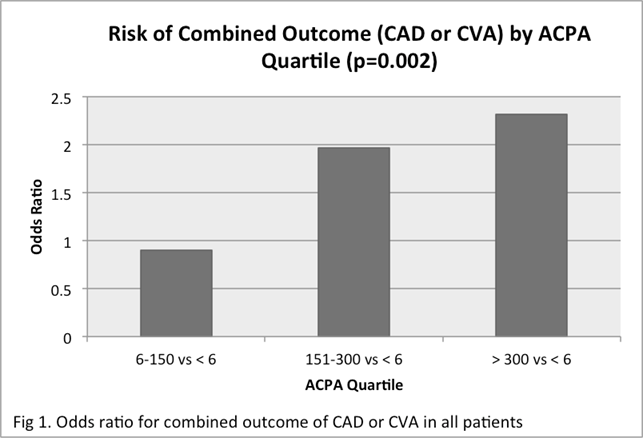Session Information
Date: Monday, November 14, 2016
Title: Rheumatoid Arthritis – Clinical Aspects - Poster II: Co-morbidities and Complications
Session Type: ACR Poster Session B
Session Time: 9:00AM-11:00AM
Background/Purpose:
Methods:
Results: 
Conclusion:
1. López-Longo FJ, et al. Association between anti-cyclic citrullinated peptide antibodies and ischemic heart disease in patients with rheumatoid arthritis. Arthritis Rheum 2009;61(4):419-24.
2. Cambridge G, et al. Antibodies to citrullinated peptides and risk of coronary heart disease. Atherosclerosis 2013;228(1):243-6.
3. Mackey RH, et al. Rheumatoid arthritis, anti-cyclic citrullinated peptide positivity, and cardiovascular disease risk in the women’s health initiative. Arthritis Rheum 2015;67(9):2311-22.
To cite this abstract in AMA style:
Fantus SA, Bussey MR, Ostrowski RA, Heisler A, Carey K. Elevated Anti-Cyclic Citrullinated Peptide Antibody Titer Is Associated with Increased Cardiovascular Risk [abstract]. Arthritis Rheumatol. 2016; 68 (suppl 10). https://acrabstracts.org/abstract/elevated-anti-cyclic-citrullinated-peptide-antibody-titer-is-associated-with-increased-cardiovascular-risk/. Accessed .« Back to 2016 ACR/ARHP Annual Meeting
ACR Meeting Abstracts - https://acrabstracts.org/abstract/elevated-anti-cyclic-citrullinated-peptide-antibody-titer-is-associated-with-increased-cardiovascular-risk/
